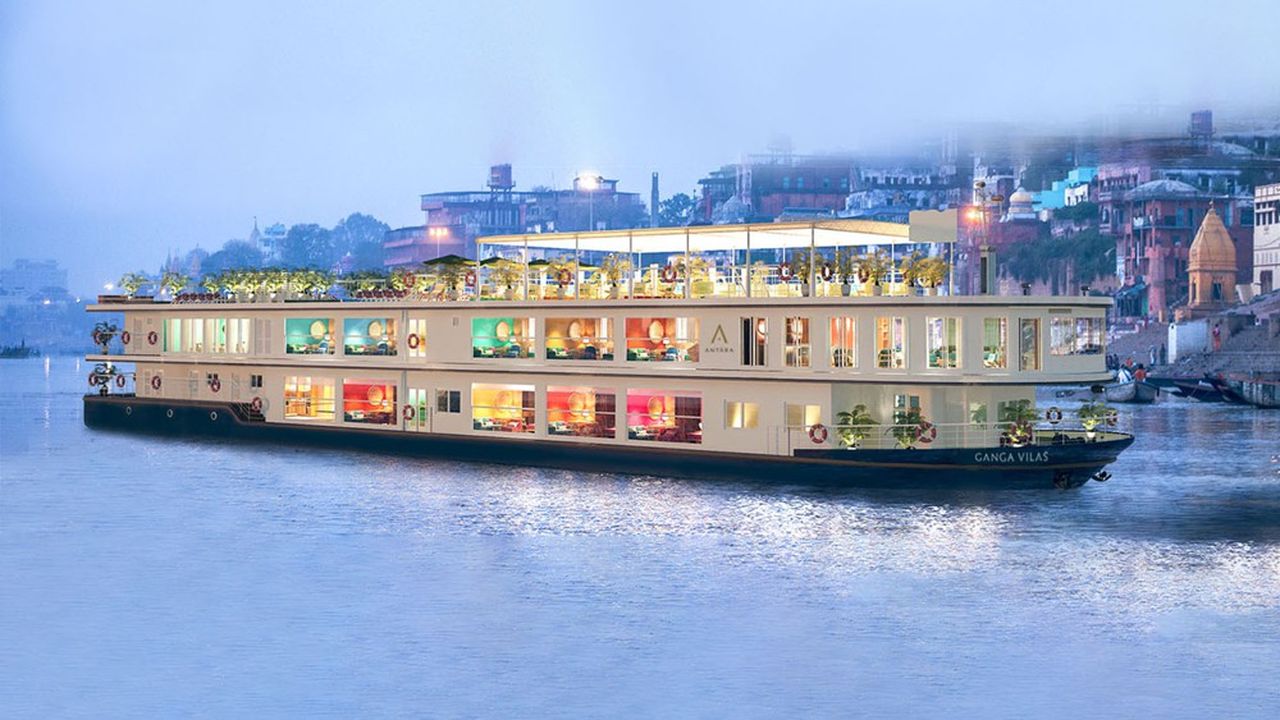Posted Jan 19, 2023, 12:00 a.m
Fifty one day journey, 3,200 kilometers in the sacred waters of the Ganges, and stopping at some of India’s most beautiful natural and spiritual sites… “The world’s longest river cruise”, as it keeps repeating. The Prime Minister of India, promises his clients unforgettable moments in the future. Narendra Modi, and his Hindu nationalist party, the BJP, feel free to talk about the “new age” of Indian luxury tourism.
According to the sales manager of Antara River Cruise company, the organizer of this cruise, quoted by CNN, tickets are selling very quickly and all trips have been completed for the next two years. A very wealthy customer because you have to spend between 30,000 and 60,000 euros to ride the MV Ganga Vilas. There were no Indians among the first list of passengers, the first customers were all Swiss, German, British or French nationals.
Environmental activists are concerned
In the official inauguration last week, Narendra Modi once again highlighted the many benefits, in his opinion, of this new cruise for his country, between the economic advantages in the area traversed by the luxury liner – 3 decks, 18 suites, 36 passengers and 48 crew members – and the creation of a field local work.
A rhetoric that does not appeal to everyone, underlines “The Guardian”, and which worries environmentalists: “There is no doubt that this cruise will have serious consequences for the 3,200 dolphins in the Ganges River”, warns biologist Ravindra Kumar Sinha , behind the Indian government’s decision to classify this dolphin as a protected species in the 1990s.
fresh water dolphin
These Ganges dolphins, freshwater dolphins with pink throats, also called “platanista gangetica”, live in colonies, are almost blind and successfully orient themselves, especially for feeding, thanks to their sonar, mastering their inner ear . However, this sonar can easily be disrupted by the sounds emitted by large cruise ships. “This voyage poses a very significant risk to the dolphins, in addition to all the species that live in the waters of the Ganges,” added the biologist.
The Ganges dolphin has been listed as a protected species since the 1990s.Features Rex/REX/SIPA
Despite recent improvements, India’s sacred river is still heavily polluted: “If we don’t take action urgently to conserve these protected species”, says Avli Verma, researcher at the Manthan Adhyayan Kendra Institute in Pune, “the waters of the Ganges will no longer be polluted.” live for a long time.” The government, he said, had traded its ecological commitments for its economic appetite.

“Twitter junkie. Hipster-friendly bacon expert. Beer ninja. Reader. Communicator. Explorer. Passionate alcohol geek.”







